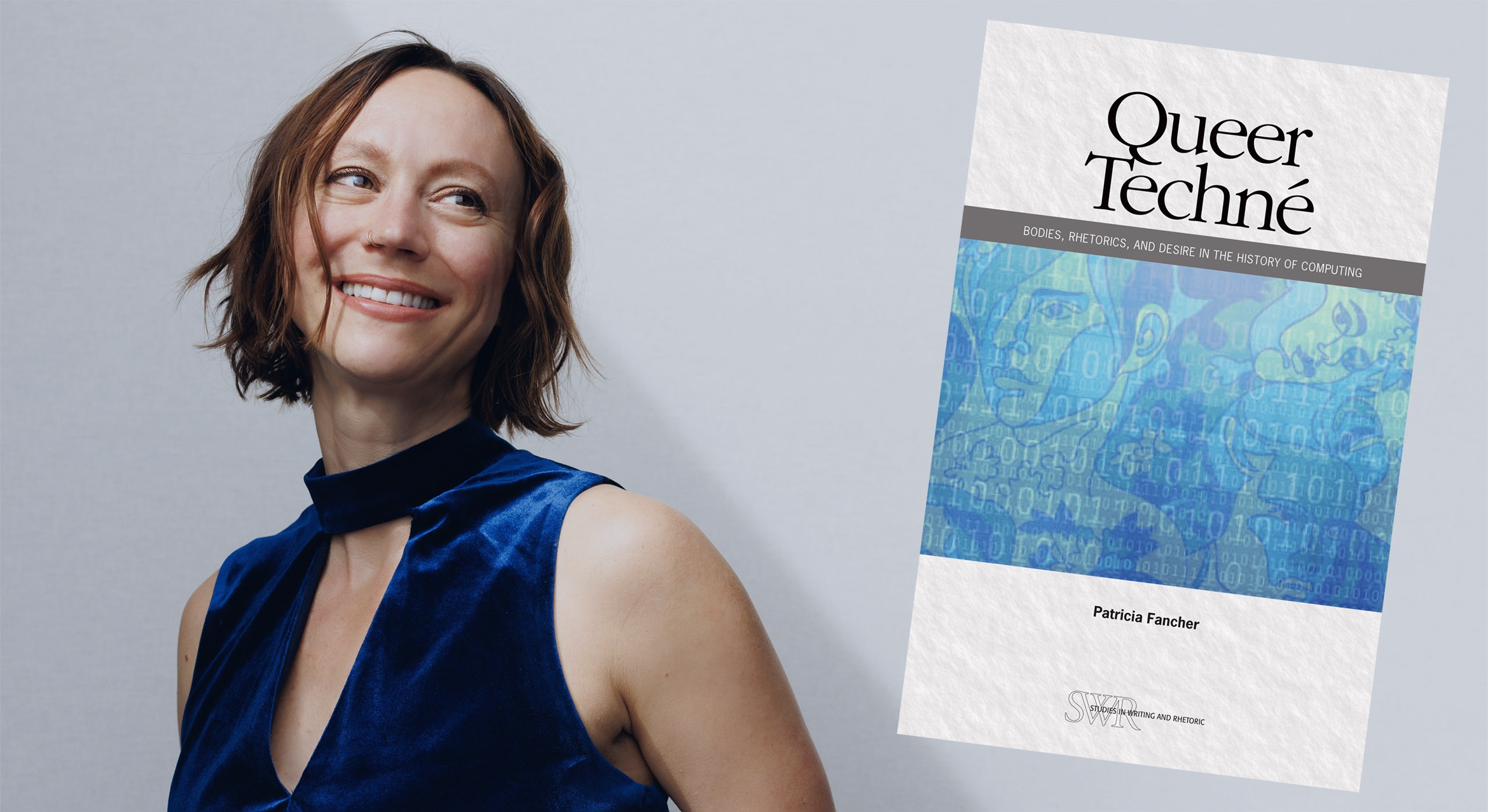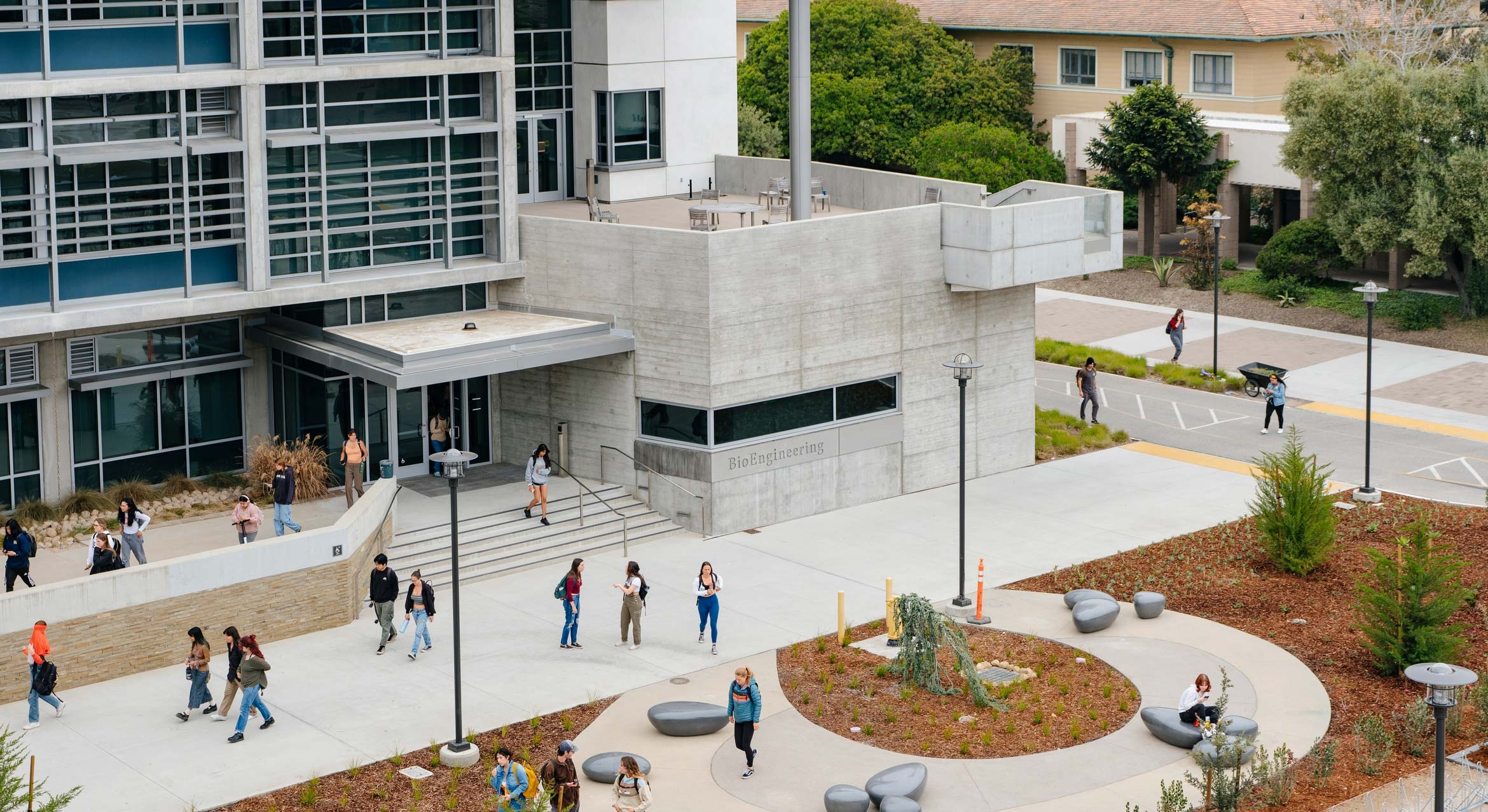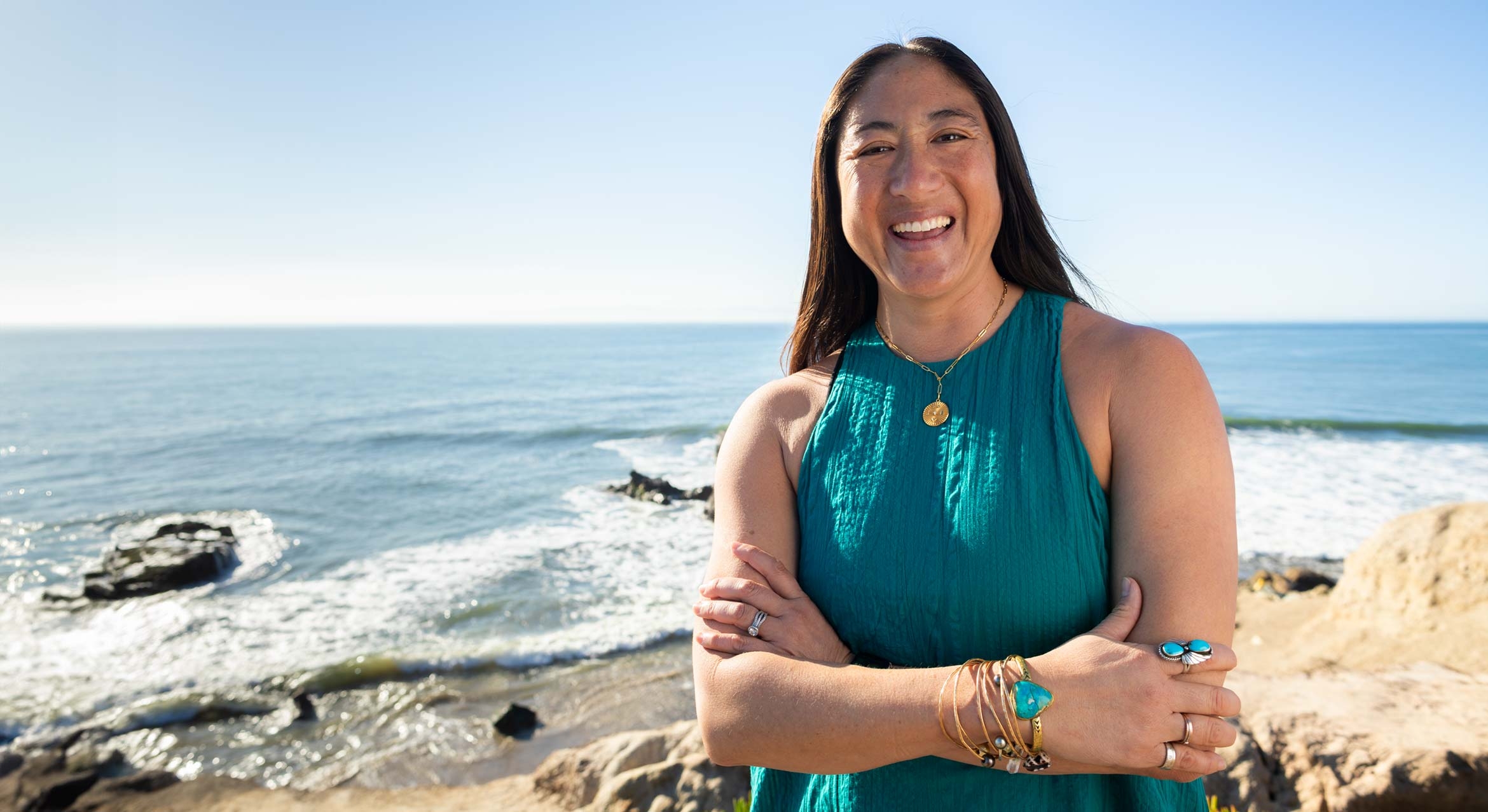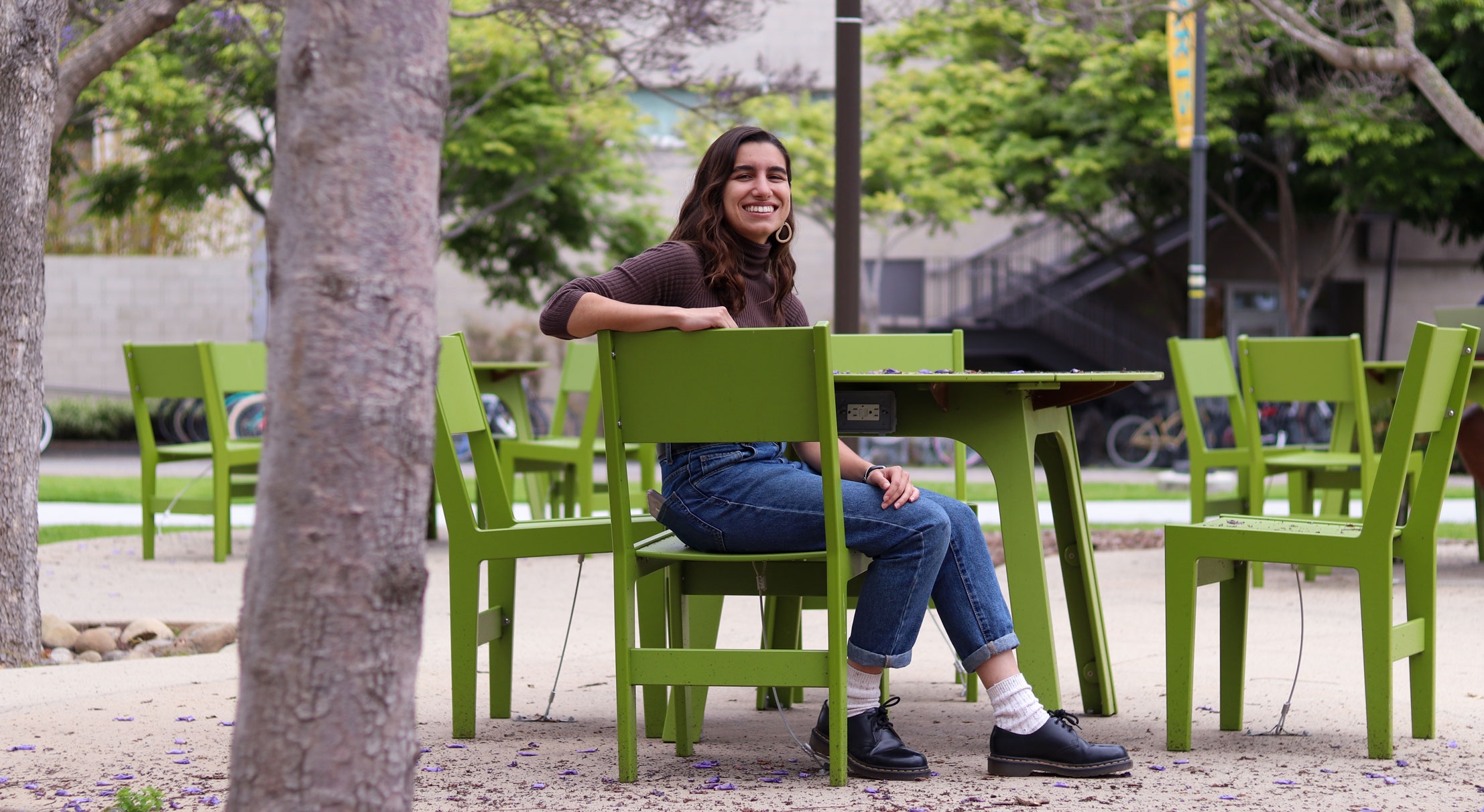
Her experience with food insecurity sparked new graduate Lily Melendez’s passion for sustainable food studies
One cool summer day while lying on a paddle board, Lily Melendez looked out at her friends, also on the water, and spotted a nudibranch on one of their boards. That encounter with a rarely seen marine creature became a favorite UC Santa Barbara memory for Melendez — just one of many for the environmental studies and English double major who will graduate this week.
But Melendez will also leave her mark on campus. As an undergraduate, she had the unique opportunity to student-teach two undergraduate environmental science courses as well as a literature correspondence course offered through the Interdisciplinary Humanities Center for participants from California prisons. Her ambitious goals as an undergraduate, particularly in sustainable food studies — the topic of one of the courses she taught — were deeply informed by her personal experiences with food and housing insecurity.
“Working as a low-income, queer student from urban roots, I know firsthand what it is like to feel hopeless in navigating the food system,” Melendez said. In her third year of college, she dealt with housing and food insecurity while she and her partner moved between temporary housing. But she didn’t let that hardship negatively impact her academic performance, and in turn, it inspired her to take a new direction in her studies.
“Many times in my life when I deal with heavy experiences, I want to learn as much as I can to better understand my situation and myself,” she said. “I began to holistically study the food system, drawing from my ecological and environmental frameworks.”
She immersed herself in food studies research, reading books and papers on everything from agricultural chemistry to soil health to food sovereignty and plant-based nutrition. “And yet, during this tumultuous time, I began to form what would later become my syllabus and curriculum for a hands-on food studies course,” added Melendez.
The following year, Melendez and her girlfriend began their own garden, building plant beds out of wood and planting traditional, native seeds. Gardening, she said, is an act of reciprocity that has allowed them to foster a sense of place, a deeper connection with their new home and with the plants, animals and food that they live with in symbiosis.
As part of the Environmental Leadership Incubator, Melendez worked with environmental studies assistant professor Liz Carlisle, to develop Sustainable Food Studies Lab — a hands-on, student-led course that addressed food security, social justice, life cycle analysis of food systems, agricultural histories and economies, health and nutritionism. Students also toured local sustainable farms and learned sustainable cooking.
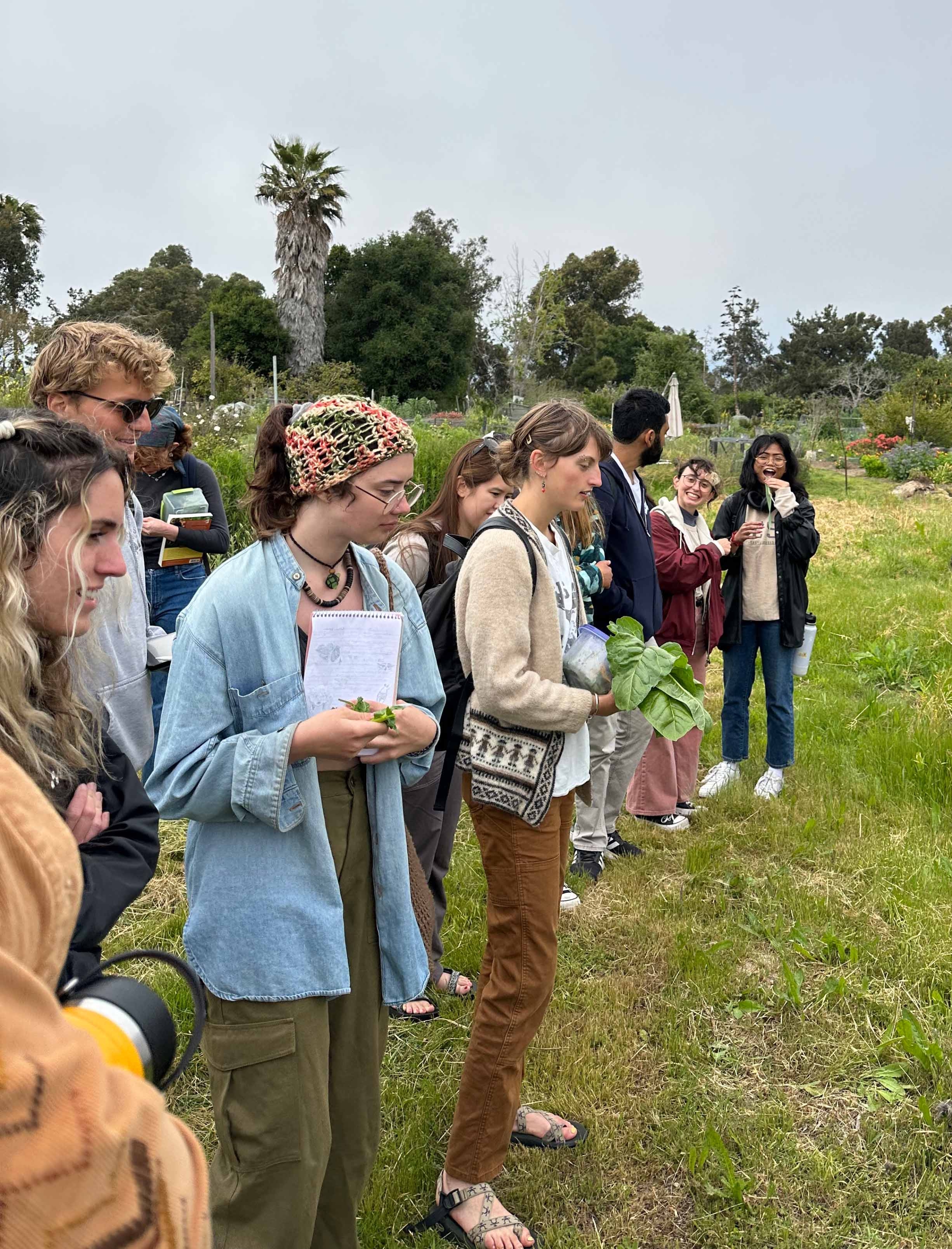
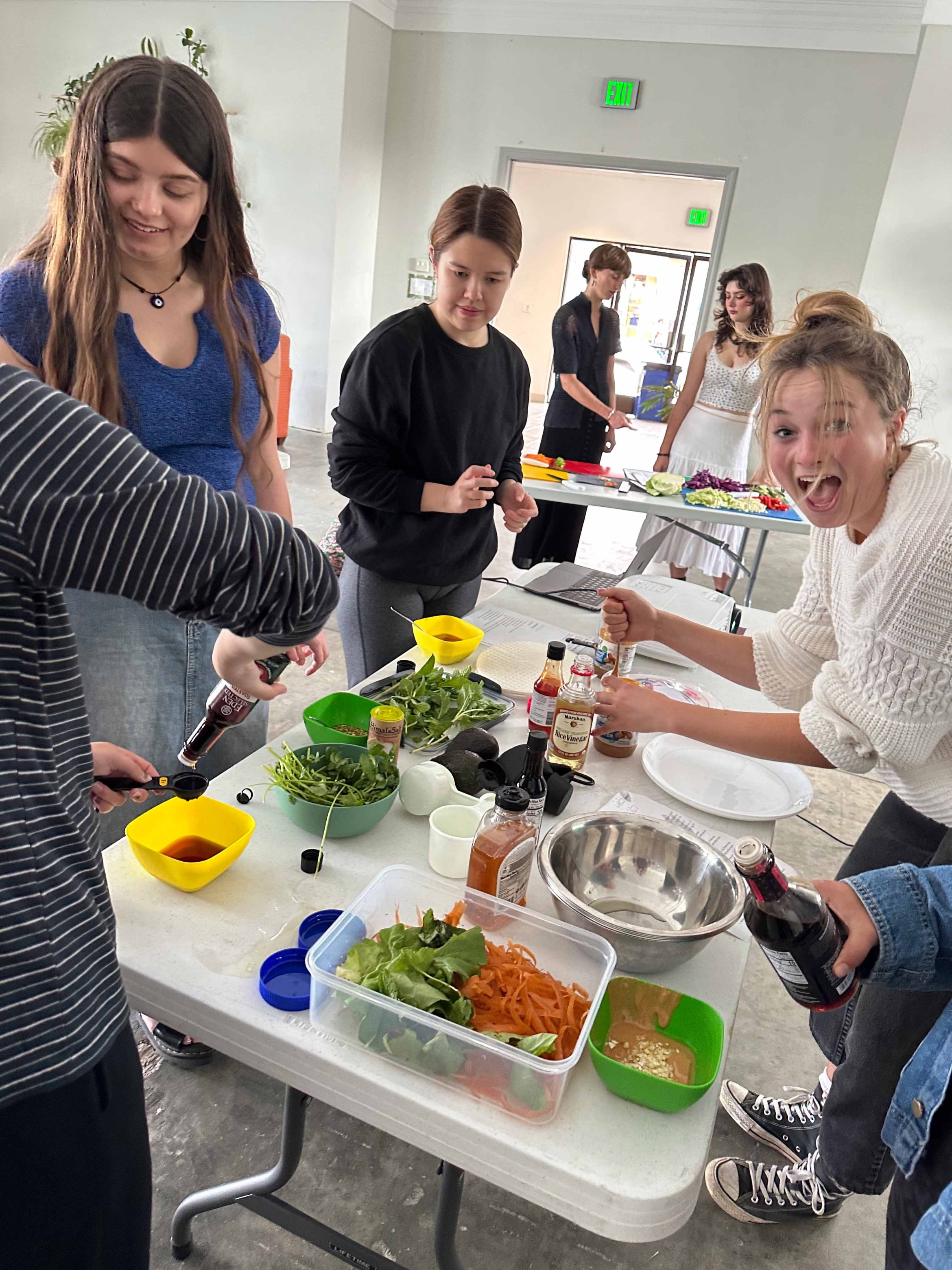
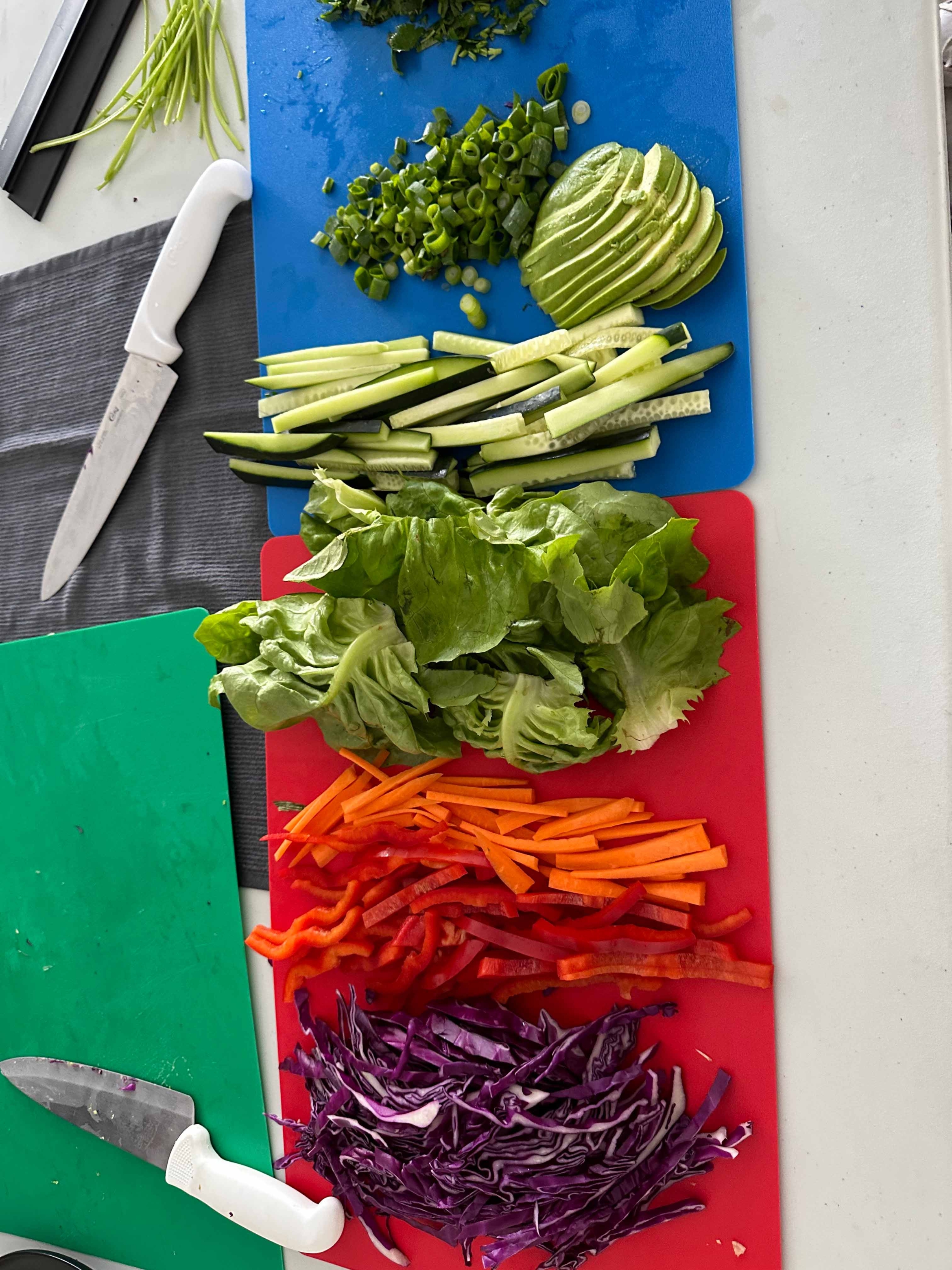
Melendez connected with local experts in the food system to lead discussions and workshops with the class, including those working in regenerative agriculture, plant-based cooking, food justice advocacy, sustainable nutrition, food science, sustainable bee-keeping and Indigenous clinical nutrition.
“Lily created a truly exemplary and interdisciplinary sustainable food studies class, drawing on cutting edge pedagogical approaches to help students connect their personal experiences with food to critical scholarly conversations across the fields of nutrition, environmental science, policy, ethnic studies and so much more!” said Carlisle.
After graduation, Melendez plans to spend a year working and traveling with family and friends before applying to graduate school to pursue a master’s degree in food, nutrition policy and agricultural studies. Her hope, she said, is to one day work in food policy reform and in higher education, developing environmental food studies curriculum.
“My ultimate goal is to make teaching kitchens and holistic nutrition and environmental education an accessible opportunity across college campuses,” she said. “As a student who has faced homelessness and food insecurity, I believe that gaining the knowledge and skills to care for and nourish our bodies is one of the most important ways to begin leading sustainable lives with agency and critical thinking at the forefront of change.”
Debra Herrick
Associate Editorial Director
(805) 893-5446
debraherrick@ucsb.edu
